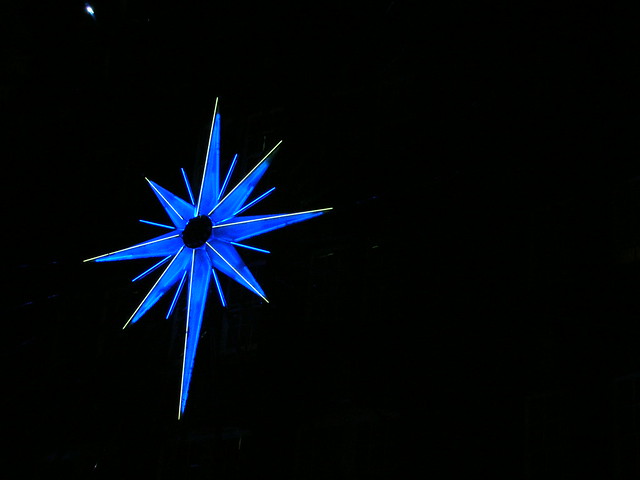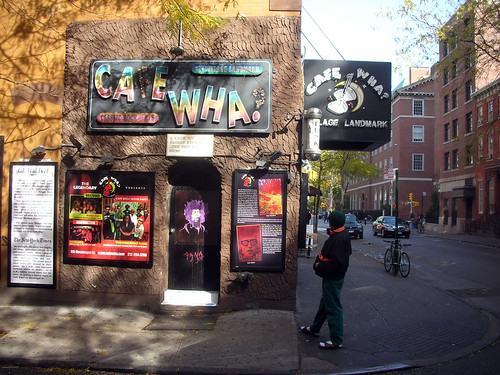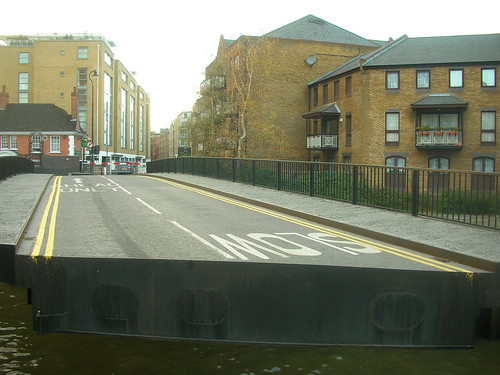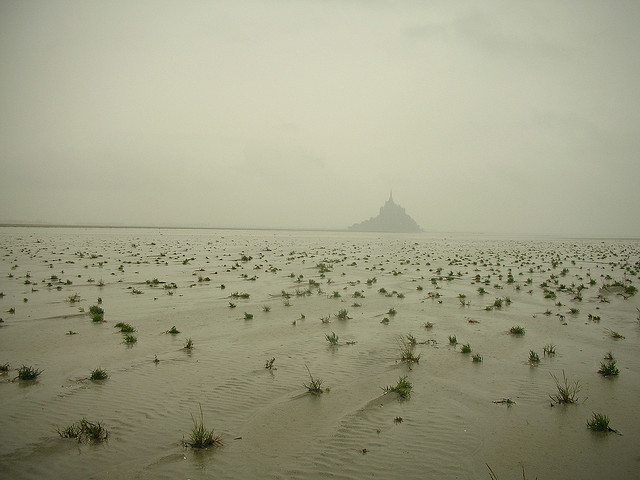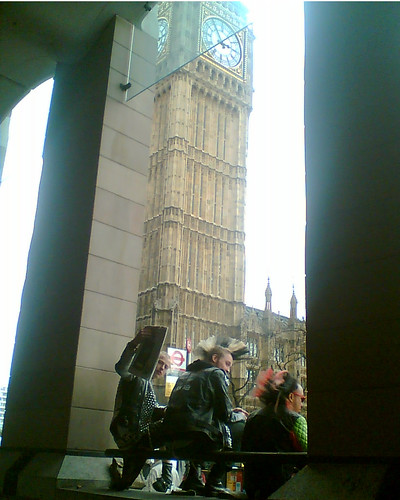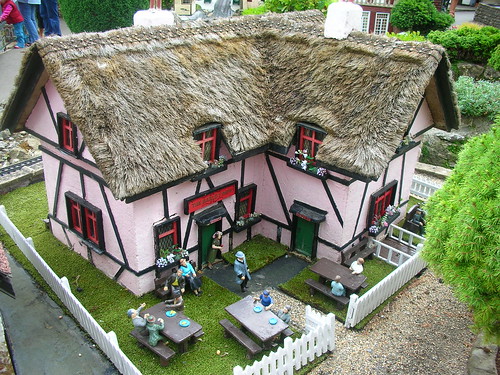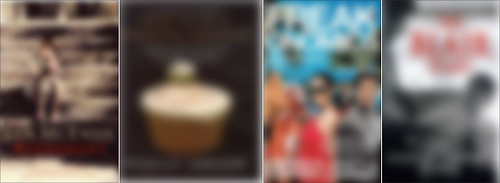Posts Tagged ‘bbc’
Only Connect — Now on BBC Two
28 August, 2014Series ten of Only Connect, with me in the question-editor chair, begins on BBC Two on Mon 1 September 2014 at 20:30.
Ary Barroso’s Aquarela do Brasil for BBC News
25 June, 2014A piece for the BBC News Magazine about Aquarela do Brasil:
One rainy night in 1939, he wrote the opening lines of Aquarela do Brasil (Watercolour of Brazil): “Brasil, meu Brasil brasileiro.” This translates as “Brazil, my Brazilian Brazil”. Never have four words been more Brazilian, before or since.
The censors had issues with some colloquialisms and a folksy reference to tambourines, but Barroso persuaded them that his “samba exaltacao” was modern and patriotic enough to meet their exacting requirements.
I thoroughly enjoyed Misha Glenny’s radio documentary The Making of Brazil, Bryan McCann’s book Hello, Hello Brazil: Popular Music in the Making of Modern Brazil and Scott L. Baugh’s reference work Latino American Cinema: An Encyclopedia of Movies, Stars, Concepts, and Trends. I am indebted; they are recommended.
My favourite versions:
And here’s that Disney, and Ze Carioca alive and well in 2014:
- See also: the BBC’s World Cup song, Stevie Wonder’s Another Star
- Photograph of a football match in Bekonscot
Stevie Wonder’s Another Star for BBC News
7 June, 2014A short-form piece for the Beeb on Stevie Wonder’s Another Star, the theme tune for the BBC’s World Cup coverage:
Another Star closes side four of Songs in the Key of Life – the very end of a four-album run in which Wonder relentlessly outdid himself. He had originally intended to follow his previous, Fulfillingness’s First Finale, with a sequel.
Fulfillingness’s Second Finale was to be a darker, socially conscious experience, but Wonder’s ambition overtook him, and he spent two years putting together a double album (with bonus single) instead.
No space this time for a collection of cover versions, so here they are.
With the Tokyo Philharmonic:
Salome De Bahia:
Caron Wheeler of Soul II Soul, Afrodiziak:
Kathy Sledge of Sister Sledge:
And, of course, with Nile Rodgers and Daft Punk:
Bob Dylan’s Like a Rolling Stone for BBC News
2 May, 2014A brief thought on the auctioning of the lyrics for Like a Rolling Stone for the BBC News Magazine.
The Times They Are a-Changin’ owes not a little to the Sermon on the Mount’s “Blessed are the meek, for they shall inherit the earth”. That earlier Dylan could be reassuring, even. You can imagine The Times They Are a-Changin’ coming from a gospel choir. Like a Rolling Stone, from 1965, is anarchy, and Dylan sounds like he’s enjoying it.
- See also: London Calling; A Whiter Shade of Pale; Killing in the Name
- Image of Cafe Wha?, Greenwich Village
Only Connect for BBC Four
14 April, 2014The new series of quiz show Only Connect starts tonight on BBC Four, with me in the question-editor seat.
Charlie Brooker’s 2013 Wipe for BBC Two
28 December, 2013I am a proud member of Team 2013 Wipe, the fruit of whose toil will be on BBC Two tonight:
Update 6 Jan: And the second series of Weekly Wipe begins on Thu 9 Jan on BBC Two.
Elvis Costello’s Shipbuilding for the BBC
7 November, 2013A short-form Smashed Hits piece for the BBC News Magazine about Shipbuilding, pegged to the closure of the Portsmouth shipyards.
It would have sounded very different if Costello had written the song for himself – or written the music. Shipbuilding was originally a piano piece written by Madness’s producer Clive Langer for a gentler performer, Robert Wyatt. Langer bumped into Costello at a party and suggested they go out to his car and listen to a cassette of the tune. Costello subsequently called from an Australian tour to say he had “the best lyric I’ve ever written”. Wyatt’s song was made – and in 1983 Costello recorded it himself.
No room, sadly, for Chet Baker playing at London supper-and-jazz club The Canteen, approached by Costello and offering to play on EC’s version for scale. “I think we probably doubled it,” remembered Costello.
Charlie Brooker’s Weekly Wipe for BBC Two
28 January, 2013I am a proud member of Team Weekly Wipe, which starts on BBC Two on Thursday evening at 22h00.
Update 01-02-2013: Here’s the programme, while it lasts:
Charlie Brooker’s 2012 Wipe for BBC Two
1 January, 2013I am a proud member of Team 2012 Wipe, the fruit of whose toil will be on BBC Two tonight:
Update 02-01-2013: Here’s the programme, while it lasts:
Looking like a scraper site, DM? The Daily Mail flaunts its spam-a-like pages with content from… the BBC!
31 December, 2012
Jon Hamm and Daniel Radcliffe as Older Doctor and Young Doctor, both inspired by Mikhail Bulgakov’s experiences in a rural hospital
The Daily Mail’s TV & Showbiz pages include many non-stories which look uncomfortably like a dump of content the paper doesn’t own…
Mikhail Bulgakov is the Russian author of the original stories on which we based the mini-series A Young Doctor’s Notebook. I recently googled Bulgakov’s wife Yelena and came across a piece which begins:
This is the story of the Soviet authorities’ persecution of the Ukrainian writer Mikhail Bulgakov, as told through the diaries of Yelena, his third wife, and Bulgakov’s own letters.
The curious thing is that the link takes you to the Daily Mail, which isn’t the first site I associate with literary biography. And the page doesn’t read like a piece of journalism, exactly. Here’s how it looks:
It seems to be the programme note for a BBC Radio 4 drama from 2001. There’s no embedded audio, link or TX details; it’s not a review – just some contextless content. Which makes the Daily Mail look uncomfortably like a “scraper” site: those odd-looking, often illegal bits of the web which use other people’s property as padding around the real point of the pages, adverts:
Some scraper sites are created to make money by using advertising programs. In such cases, they are called Made For AdSense sites or MFAs. This derogatory term refers to websites that have no redeeming value except to lure visitors to the website for the sole purpose of clicking on advertisements.
When I accessed the Mail page which did well in search for Yelena Bulgakov, it had ads from Play, M&S, WeightWatchers, Ariel, Always and Google Ads. Perhaps it’s an anomaly, I thought. A one-off test page with some placeholder text which should have been deleted to avoid any risk of looking like the Mail was covertly bringing users to a page with content they don’t own to generate commercial revenue. I had a look around the TV & Showbiz section of the Mail and found a similar looking page:
And another one:
Again, lots of ads around both and in the second one, some information about other Radio 4 programmes. As it turned out, I found it difficult to think of a Radio 4 programme that hasn’t been surrounded by ads and made into a Daily Mail page.
Very odd. Someone had even added a picture to the Archers episode description, like with this documentary about Gandhi:
It’s a while since I worked at the BBC; perhaps these pages are part of a project where the Beeb has generously handed over its own content – or that of independent production companies – to help with the Daily Mail’s revenue streams, even while the Mail takes every opportunity to bash the Beeb. Perhaps there’s a reason none of these pages seems ever to have been linked to from the Mail’s front page. Perhaps it’s a good use of your licence fee. Who knows?
Other advertisers who find themselves next to BBC content include Marriott, Sky, Toyota, Dell, Lotto, Virgin, Nokia, Nationwide, Direct Line, Reiss, BA, Corsodyl, HSBC, JP Morgan, BT, Barclays and the Department for Business, Innovation and Skills. On all of them are Google Ads, the terms and conditions of which have a questionable relationship with the content.
Performance rights and John Cage’s 4’33” for Ariel
20 August, 2012I’ve written a piece for Ariel, the BBC’s in-house magazine, about the experience of making an audio slideshow containing a megamix of performances and recordings of John Cage’s 4.33.
- Me on other Christmas singles: Killing In The Name; Hallelujah; Fairytale Of New York
- Photo taken in Black Swan Arts gallery in Frome
Screenwipe Review of the Year 2011 for BBC Four
29 December, 2011I am a proud member of Team Screenwipe 2011, the fruit of whose toil will soon be on BBC Four:
Louis Armstrong’s What A Wonderful World for the BBC
10 December, 2011A piece about Louis Armstrong’s What A Wonderful World for the BBC.
It’s also irrepressibly public-spirited, people shaking hands on the street are, apparently, ‘saying I love you’ – illustrated in the Attenborough video, oddly, by two hippopotamuses fighting each other in the Okavango river.
And this is not the first time What A Wonderful World’s generosity of spirit has been juxtaposed with less-than-cheerful imagery.
No room, sadly, for Armstrong’s 1957 refusal to join a goodwill visit to the Soviet Union, saying: “The way they are treating my people in the South, the government can go to hell.â€
- Smashed Hits on perhaps-unlikely politics: Down Under; Two Little Boys
Bright blessed day photograph taken in Richmond Park; dark sacred night in Almondsbury – both in voguish Pano formatAccidentally permanently deleted and replaced with Mont St Michel
Sue Perkins’ Dilemma on BBC Radio 4
20 November, 2011I wrote for this Radio 4 programme, which was invented by @captainward and which you must listen to:
Twittiquette – or Twemes among Tweeple who Tweetup for Twirting and/or Twisticuffs
5 September, 2011I’ve written a piece for the BBC about words beginning with “tw-“, and why people enjoy coining them on Twitter.
“Flick through a dictionary and you’ll notice something about the English language’s ‘tw’ words. We have a few related to ‘two’: twin, twelfth, twilight and so on. And there’s a tiny minority of what you might call fairly sensible words: tweezers, twig and of course tweed.
“The rest, though, tend to be of a type that’s more playful or, depending on taste, more grating. ‘Tw-‘ words can be about inanity or ignorance: twit, twerp, twonk or twaddle. They can suggest lightness, smallness or delicacy: tweak, twiddle or twinkle. Or they can flag up that you’re being self-consciously old-fashioned: ’twas and ’twere; ‘twixt and ‘tween. All very twee.”
Sadly there was no room for the etymology of “twonk” – coined/popularised, according to the Telegraph, by John Sullivan to give Del Boy a non-sweary swear word; nor for gay slang “twink” (“with a slender build, little or no body hair, and no facial hair”).
Also, now that we know that “twilight” relates to “two”, why not let’s enjoy some twilights I’ve seen?
- More on exciting/annoying new words in my piece on Nudge, Blink, the Magnetic Middle &c.
- Props to Michael Rosen, Sadanand Dhume and languagehat.
The Clash’s London Calling for the BBC and NPR
28 July, 2011As the countdown to the 2012 Olympics kicks off with an unlikely theme song, I look London Calling and its zombies and heroin for the BBC.
“The Clash were supporters of pirate radio and considered launching their own station; this love song to the wireless signal recounts what, in punk terms, is up-to-the-minute and truthful news. But it isn’t saying ‘come and enjoy the canoe slalom’.”
Major hoorays to Marcus Gray’s Route 19 Revisited for the key fact that London Calling was originally inspired by Joe Strummer’s dislike of sports fans visiting London, as he explained to Kosmo Vinyl (Clash On Broadway box set booklet, 1991). Awkward [Update [1 Aug]: Praise be! Route 19 is imminently in paperback. There is nothing more interesting to say about 1979; I know – I tried! Buy it – it is The One.]
Sadly there was no space to mention Clash fan of Indian origin Harraj Mann, questioned in 2006 under the Terrorism Act after a taxi driver taking him to Heathrow airport became alarmed that he was listening to London Calling and called the police. The incident was seen as a massive overreaction, suggesting either that the song has lost its incendiary power, or that the authorities were being over-cautious – or both.
Also neglected was the way Strummer starts “doing” Tommy Steele’s Singing The Blues at the end (“I’ve never felt so much a-like…”), never better described than by Tom Ewing: “No consonant is safe with Steele around, words pool into one another in a shrugged gush of pre-meditated moodiness.”
Update [30 Jul]: Here is wireless nabob Scott Simon of NPR’s Weekend Edition Saturday yakking with me (see also NPR’s blog The Record):
- Image of comedy London punks in Westminster, 2006. It turned out, as they snarled at me, that I’d broken some implied contract where I’d pay to photograph them in a public place.
- Here’s an old BBC “London Calling” poster: “Throughout Europe, men and women are risking imprisonment, and even death, to hear the news from London, because they know it tells them the truth.”
- Some overlap with an earlier piece I wrote about (White Man) In Hammersmith Palais.
- People who like to know about mixing an instrument DI with a Neumann U87 on the cabinet will appreciate Mix’s Classic Tracks feature on the song; this BBC audio slideshow on the London Calling album is less abstruse.
Queen’s Bohemian Rhapsody for the BBC and NPR
15 June, 2011Radio 4 listeners have chosen Queen’s opera-headbanger as their favourite Desert Island piece of pop; I explain all in a feature for the BBC News Magazine, What is a Bohemian Rhapsody?:
“Freddie Mercury used a piano as the headboard of his bed. The double-jointed Mercury would awake with inspiration, reach up and back behind his head and play what he’d heard in his dreams. This was how Bohemian Rhapsody began.”
Update [22 Jun]: Here is Scott Simon of NPR’s Weekend Edition Saturday yakking with me about Bismillah and Scaramouche:
- Other florid lyrics I have enjoyed dissecting: Flowers In The Rain; A Whiter Shade Of Pale.
- More American public radio below; I discuss Daniel Powter’s Bad Day [article here] with John Schaefer on WNYC’s Soundcheck.
- Photo taken at the Alhambra in AndalucÃa‎ and included in tribute to Dr Matthew Beaumont‘s evocation of Moorish architecture. [More Beaumont in his book with Patrick Keiller, Chris Petit, Iain Sinclair et al, Restless Cities
.]
Google-Proofing the Pub Quiz
1 June, 2011I’ve written a feature for the BBC News Magazine about how pub quizzes can survive the smartphone era.
“Text-messaging Is Destroying the Pub Quiz As We Know It, noted the Super Furry Animals in 2001. Little did they know that the pub quiz of 2011 would start with the host insisting: ‘OK, iPhones away, please. Yes, very clever – and Androids. All phones away.’
“Cheating has always been possible in pub quizzes. But while once the dishonest quizzer had to pop out to phone a friend, or wait for a text message reply, phones with fast internet access have taken cheating possibilities to a new level.”
- Related: a piece by me for the BBC about Google getting us to teach it to see.
- Sadly, I was only able to talk to Stuart Jeffries, who sets the King William’s College Quiz, after publication. Perhaps next time.
- The last time I talked quizzes for the BBC was in this report by the excellent Chris Vallance for Broadcasting House on Radio 4.
- Photo taken at Bekenscot Model Village.
- One type of question which there wasn’t room for was the Blurred Cover. Below are four best-sellers. But what are their titles and authors?
John Cage’s 4′ 33″
1 January, 2011I made an audio slideshow for the BBC about this year’s X Factor-botherer, 4.33. Headphones recommended, and you have to click on the link or image to get there.
- Me on other Christmas singles: Killing In The Name; Hallelujah; Fairytale Of New York.
- Photo taken in Black Swan Arts gallery in Frome.


